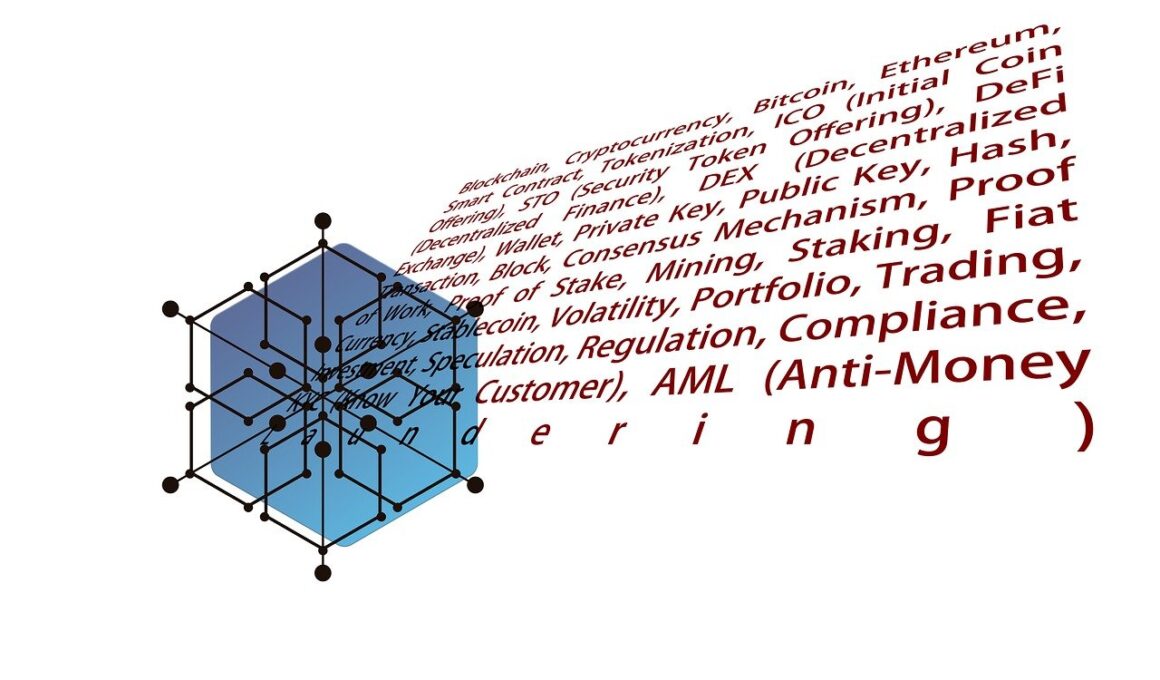Impact of ICOs on Traditional Venture Capital Funding
Initial Coin Offerings, widely known as ICOs, have dramatically altered the financing landscape for startups and emerging companies. This fundraising method allows enterprises to raise capital by issuing new cryptocurrencies or tokens in exchange for established currencies like Bitcoin or Ethereum. Unlike traditional venture capital (VC) funding, ICOs are accessible to a broader audience, including retail investors, eliminating some barriers associated with VC funding. ICOs provide an opportunity for faster fundraising, often achieving capital goals in mere hours or days. This speed can significantly shorten the time to market for innovative projects. Moreover, ICOs do not typically require the rigorous due diligence that traditional investors undertake. However, the ICO landscape is fraught with risks including regulatory scrutiny and fraud, making it crucial for investors to conduct their research. Additionally, the volatile nature of cryptocurrencies implies higher potential rewards but also a greater risk for investors. While ICOs have made waves in the funding ecosystem, they still must navigate market dynamics, and regulatory hurdles remain a challenge for traditional venture capital to adapt and evolve.
ICOs have enhanced options for startups seeking capital, shifting dynamics in the venture capital funding landscape immensely. With traditional VC, startups often face lengthy vetting processes and negotiations that can take months, if not longer. ICOs, however, bypass many of these hurdles, allowing companies to engage directly with supporters and attract funding quickly. Furthermore, ICOs enable smaller investors to participate in projects that were traditionally restricted to accredited investors. By democratizing investment opportunities, ICOs appeal to a larger pool of backers. Moreover, the rise of blockchain technology introduces new business models that challenge conventional startup structures. Companies may leverage tokens to promote their services while building a community around their brand, effectively generating interest, loyalty, and initial funding simultaneously. However, potential investors must bear caution and skepticism regarding unregulated projects that can sometimes resemble scams. Due diligence and risk assessment are vital in this evolving landscape. With established venture capitalists exploring ICOs, the boundaries between traditional funding methods and modern crowdfunding approaches continue to blur.
The influx of ICOs into the funding arena has led many venture capitalists to reevaluate their investment strategies. Traditionally, VCs have relied on face-to-face interactions to gauge startups’ potential, cultivate relationships, and secure their interest in new projects. The ICO model upends this dynamic, relying on digital marketing and community engagement to generate interest before launching fundraising campaigns. This shift means VCs must adapt to a world where information is disseminated rapidly online, and market trends can change at breakneck speed. Keeping an eye on emerging technologies and trends allows venture capitalists to remain relevant and competitive. Additionally, some investors remain skeptical of ICOs due to their high risks and regulatory uncertainties. VCs are increasingly diversifying their investment portfolios by incorporating blockchain technologies and tokens into their considerations, despite potential drawbacks. This incorporation allows them to align with innovations while exploring alternative valuation methods. As the ecosystem continues to mature, collaborations between ICO projects and established venture capitalists may lead to new synergies that merge traditional principles with disruptive technological advancements.
Challenges Posed by ICOs
Despite their advantages, ICOs present several challenges for both investors and startups. One of the primary concerns is the regulatory environment, which varies significantly across jurisdictions. Many countries remain uncertain about classifying tokens as securities, leading to confusion surrounding legal frameworks. This uncertainty can lead to regulatory crackdowns, hindering ICO success if not navigated properly. Investors should remain cautious, as many ICOs have fallen prey to fraud, where the promised product or service never materializes after funds are raised. Another challenge is the lack of investor protections often found in traditional financing, where detailed agreements and outlines guide the process. In ICOs, potential buyers frequently rely on whitepapers that may lack transparency or accuracy. Additionally, there is the risk of market volatility, making it difficult for newly established projects to maintain initial momentum post-launch. Consequently, understanding these risks and challenges can empower investors as they contemplate participating in ICO projects. The onus remains on individuals and teams to conduct thorough research and engage with credible sources to mitigate potential pitfalls.
The successful integration of ICOs into the modern fundraising environment may also redefine traditional venture capitalists’ roles. In an ever-evolving landscape, some may embrace ICOs as a legitimate fundraising tool while others maintain skepticism. As ICOs gain traction, traditional VCs might begin to consider hybrid models that combine conventional equity investments with token offerings. This approach could present a more balanced method of fundraising, catering to both forward-thinking investors and those cautious about the inherent risks associated with blockchain technology. Additionally, more startups may seek guidance from experienced venture capitalists to navigate the legal and regulatory frameworks surrounding ICOs. This collaboration can ensure not only compliance but also foster innovation by focusing on drive and sustainability in emerging industries. Over time, as the industry matures further, we will likely see a convergence of traditional venture capital practices with innovative crowdfunding approaches like ICOs, leading to a more integrated funding environment. The continual rise of technology introduces both opportunities and challenges that VCs must leverage wisely to navigate a dynamic market.
The Future of Fundraising
The future of fundraising will likely be characterized by increasing integration between ICOs and traditional venture capital. As both ecosystems learn from one another, it is vital to maintain clarity and transparency in doing so. Moreover, technology’s rapid advancements may provoke regulatory action, as governments adapt to emerging funding methods. Investors will come to expect clearer guidelines protecting their interests in the ever-changing landscape. As the cryptocurrency and blockchain sectors continue to grow, traditional venture capital must remain vigilant in understanding market trends and responding proactively to shifts in investor sentiment. Furthermore, methodologies for assessing project viability will evolve, particularly in assessing token-based models and their economic importance. This evolution means that VC firms that adapt and innovate can expect to remain competitive in the crowded marketplace. An important aspect will involve balancing between risk and opportunity while staying true to the industry’s core values of fostering innovation. As ICOs continue to carve out their space in the fundraising landscape, their impact upon traditional venture capital will likely only deepen, creating a new age of collaboration and competitiveness among investors.
In conclusion, ICOs have reshaped the traditional venture capital funding paradigm, presenting both remarkable opportunities and significant challenges. As startups increasingly leverage this crowdfunding model, they often experience faster, broader, and less restricted access to capital compared to traditional methods. Conversely, venture capitalists are prompted to reassess their strategies and adapt to a rapidly evolving landscape where speed, transparency, and regulation take center stage. The complexities surrounding investor protections, legal classification, and market volatility contribute to confusion but also open dialogues for improvement and the evolution of best practices within the industry. As organizations explore this innovative funding avenue, a collaborative mindset can enhance synergies between established VCs and emerging ventures through token distributions. The future of fundraising may very well lie in the intersection of ICOs and venture capital, where only those willing to embrace hybrid solutions can prosper while navigating the transformative world of finance. The collaborative atmosphere between traditional and modern methods represents a pivotal transition in how startups attract funding while enhancing investor engagement.
In recent years, the dynamics surrounding initial coin offerings (ICOs) have become a focal point in the finance and technology sectors, impacting how startups raise capital and engage with potential investors. ICOs offer unique opportunities for innovation, providing greater access to fundraising compared to traditional venture capital (VC). This change invites both excitement and apprehension as the landscape evolves, with supporters advocating for the democratization of investments while critics raise concerns over regulation and investor protection. On one hand, ICOs have expedited the funding process for many startups, allowing them to generate interest and resources quickly. On the other hand, the decentralized nature of this model increases risks for unsuspecting investors. ICOs bypass conventional funding methods characterized by extensive vetting and established investor networks, creating a sense of urgency and heightened competition. As a result, the relationship between ICOs and VCs is one of tension that may give rise to new funding paradigms. It remains essential that both models learn from each other while collaborating to establish trust and credibility within the investment community.


